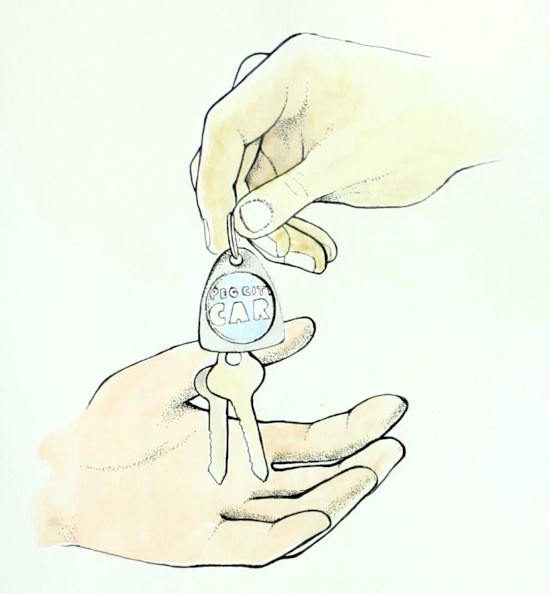The carsharing alternative
Combating congestion with co-ownership

Illustration by Gabrielle Funk
The ever-increasing demands of private car ownership hold Winnipeg’s infrastructure captive. Parkades suck up valuable real estate, multi-lane highways seemingly run through every intersection, and important services are frequently placed in distant industrial parks.
Even in the downtown core, the city’s never-ending sprawl means urbanites often have to make the proverbial trek out into the burbs to visit dentists, doctors or family members.
Winnipeggers who cannot or chose not to buy a car are left with few viable options for transportation. Buses are infrequent, unreliable and inefficient. Cyclists have to fight for their lives just to get around. Gargantuan parking lots make a simple trek to the grocery store a voyage.
Additionally, since Canada almost totally neglects city-to-city transportation options, such as trains or buses, cars are the only choice for those looking to get out for a weekend.
Recently, car-sharing has come to Winnipeg as a valuable alternative to private car ownership.
In 2011, Peg City Car Co-op launched with three cars and 40 members. More than a decade later, the service has expanded to offer 130 vehicles and serve 3,000 members.
The car-sharing model allows people access to vehicles without the costs and inconveniences associated with private ownership.
As the name suggests, Peg City Car Co-op offers a model where users pay the capital costs by buying shares in the cooperative and becoming part-owners of the fleet. From then on, users only have to pay costs per trip.
In those infrequent circumstances where users need a car to access distant services, haul large objects or take a trip out of town, car sharers can pick up a vehicle.
The car-sharing model means fewer cars contend for precious space in the downtown core. This has the potential to open up room for bike paths, bus lanes and sidewalks.
Alternatively, access to trucks and vans means that people moving no longer need to rely on the one friend or family member who owns a 2,000-kilo monstrosity.
Beyond accessibility and infrastructural concerns, the car-sharing model, as an alternative to private ownership, presents environmental benefits.
As more people wish to mitigate their contribution to carbon emissions, many consumers are ditching their old vehicles and purchasing new electric or fuel-efficient cars. This accelerated transition to fuel efficiency neglects the impact of car manufacturing on carbon emissions.
Researchers at Kyushu University in Japan argue that the emissions from manufacturing new vehicles often outweighs the benefits of simply keeping already-existing cars on the road.
Car sharing allows people who have not yet purchased a car the opportunity to access fuel-efficient cars, rather than buying a new one. At the same time, those who already have a car can transition to fuel efficiency without each having to purchase a new vehicle.
Although car sharing is not an alternative to the development of better transportation services, it offers an inbetween, allowing Winnipeggers, who otherwise would be marooned in the sea of highways and byways, to easily get around.
Patrick Harney is the comments editor at The Uniter. His doctor is a two-hour walk from his house.
Published in Volume 78, Number 09 of The Uniter (November 9, 2023)







